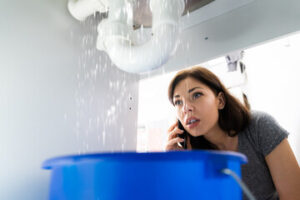When to Call Emergency Plumbers
Plumbing emergencies can happen at any time, including in the middle of the night or on holiday weekends. When the need arises, you might be tempted to call the first emergency plumber you see, but there are other options. Before you call a 24-hour plumber, you should first determine what the problem is. In some cases, a small pipe leak can be an indicator of a larger problem, such as a burst pipe.

The first step in repairing a water heater leak is to identify the location of the leak. This helps emergency plumbers to narrow down possible causes and makes the repair process easier. In addition to locating the leak, homeowners can take preventative measures to prevent it from happening again. Tighten any loose parts so that the water cannot leak.
A leaky water heater can damage walls, floors, and possessions. It is important to have this problem repaired as soon as possible. Depending on the cause, small problems are easy to fix, while larger problems may require a new water heater. If the leak is causing a large amount of water to escape, you may need a new water heater.
Some causes of water heater leaks are condensation, faulty valves, or water softener discharge lines. If you suspect a water heater leak, use a towel or newspaper to trace the source of the leak. If it is coming from a source you can’t identify, check it over a few days to see if the water source changes.
Some homeowners prefer to hire a plumber for such emergencies. However, the decision to call a plumber depends on your comfort level and the complexity of the repair. Some leaks can be repaired by tightening connectors and replacing flex lines. Otherwise, you will need to call an emergency plumber.
Water heater leaks are a serious problem. Not only can water damage your home, but it can also result in an explosion. It’s important to call an emergency plumber if you notice water coming out of your water heater.
If you are experiencing a burst pipe in your home, it is important to call an emergency plumber right away. A plumber will be able to assess the situation and shut off the water, so you don’t have to worry about flooding. They will also clean up the mess and help prevent mold growth. Unlike local plumbers, emergency plumbers are trained in water damage restoration so they can dry out your home completely after a burst pipe.
Burst pipes can occur for many reasons. Damage, age, and misuse can all cause pipes to fail. Over time, faults will be exposed. When a pipe ruptures, it can be devastating. It can damage your property and put you out of your home. In some cases, a pipe could break on the main water system, closing the area for days. Leaving you without water or sanitation for days is enough to put your life in jeopardy.
Burst pipes are especially common in the winter, as temperatures dip. Water in the pipes can freeze and burst, releasing gallons of water in seconds. In addition to causing extensive damage, water can also create mold and mildew problems, which could compromise your health. Fortunately, emergency plumbers for burst pipes can help repair the damage.
Whether you have a broken pipe inside or outside of the house, it is important to contact an emergency plumber as soon as possible. Water pressure in the house may fluctuate, and water may be a brownish color due to bacteria or particles. You might also hear noises coming from the pipes, such as bubbling and gurgling. These may be signs of a burst pipe or tension points in the pipe. In addition, the smell of rotten eggs may be an indicator of a burst pipe.
Clogged drains can be a frustrating problem, but it doesn’t have to be a major issue if you call an emergency plumber to clear them. While you might be tempted to try to unclog the drain on your own, you may end up causing more damage to your plumbing system in the long run. Plumbing professionals are trained to handle any type of blockage and can often identify the underlying problem, preventing it from causing more problems.
Most clogged drains are caused by a combination of factors, including hair, soap, and dirt. These items can easily clog your drain, which can back up water and create a breeding ground for bacteria. The best way to avoid these clogs is to avoid flushing them.
